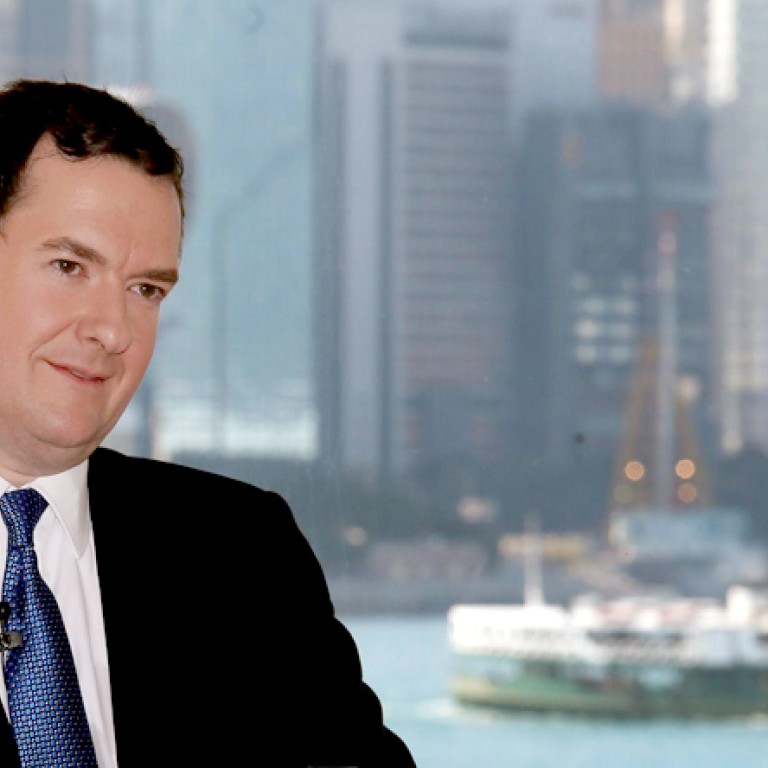
China and UK in talks over London yuan clearing bank
Discussions pave the way for bank, which would threaten Hong Kong's dominant yuan position
The British and Chinese governments are in "active discussions" to appoint a clearing bank in London, a move seen as further eating into Hong Kong's market share of the offshore yuan business and cementing the Western city's leading position in the global offshore yuan hub race.
London would be the fourth location outside the mainland, after Hong Kong, Taiwan and Singapore, to have a yuan clearing bank - an authorised intermediary for the exchange of the Chinese currency against US dollars or euros between banks on the mainland and offshore participating banks.
Watch: Britain seeks to boost yuan trading role: Osborne
"The UK and Chinese governments are in active discussions about the appointment of a renminbi clearing bank in London," Chancellor of the Exchequer George Osborne said in a speech to business leaders in Hong Kong yesterday.
"Ultimately what we all want to see is RMB being used more and more as a currency of choice in the world."
Market watchers expect a clearing bank in London to seriously challenge Hong Kong's monopoly in this business.
Most yuan - also known as renminbi - settlement orders that Hong Kong banks handle now are from Europe, as about 47 per cent of yuan global payments excluding mainland China and Hong Kong are from the continent, according to data from financial services provider Swift.
Hong Kong accounts for 70 per cent of offshore yuan deposits and payment transactions globally, according to data from the Hong Kong Monetary Authority. But HKMA head Norman Chan Tak-lam said Hong Kong "will not, and should not" hold such a big share of yuan business forever.
"It is unrealistic for one to expect a long-standing monopoly by Hong Kong on the world's offshore renminbi business," Chan said in a public letter.
Osborne declined to comment when asked which bank would be appointed or whether the authorities would appoint a subsidiary of a Chinese bank or a foreign lender to take the role.
"A clearing bank would help cement economic infrastructure of renminbi business in the city," he added.
The role of clearing bank is lucrative as it would allow a bank to charge service fees and have an account to get access to the interbank bond market, which usually offers higher returns.
China has three offshore clearing banks, all state-backed subsidiaries of mainland banks: Bank of China (Hong Kong), Bank of China's Taiwan branch and Industrial and Commercial Bank of China's branch in Singapore.
BOCHK clears about 700 billion yuan every day, while the other banks clear about 200 billion yuan a day each, Yang Ruhai, head of yuan business at BOCHK, said in a previous interview.
HSBC and Standard Chartered are the two biggest underwriters in offshore yuan bonds with market shares of 17.1 per cent and 18 per cent respectively.
Osborne said Chinese asset manager E Fund plans to partner with ETF Securities of London, to launch an investment product on the London Stock Exchange.

